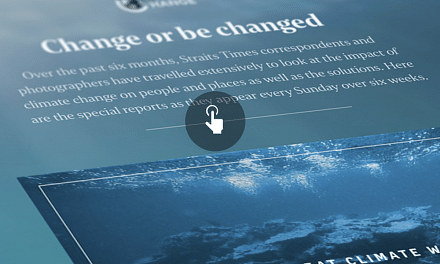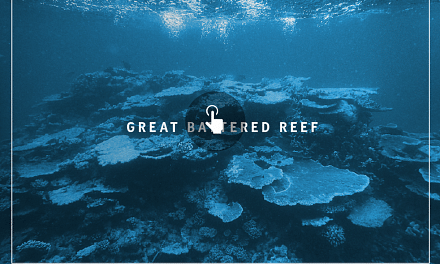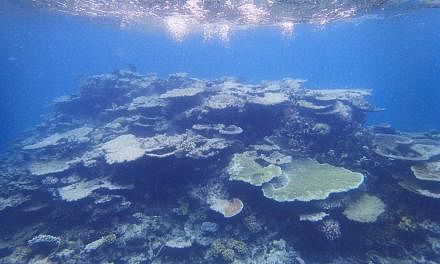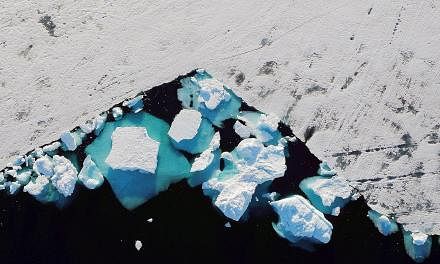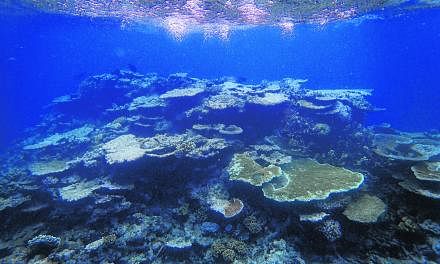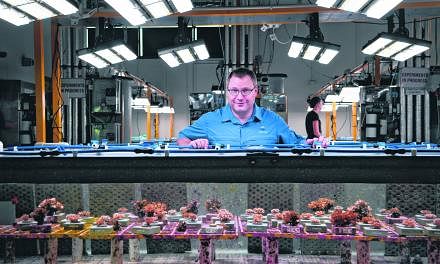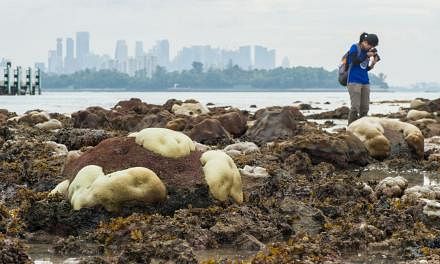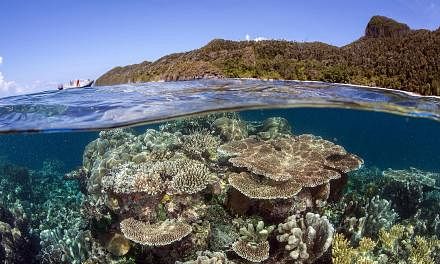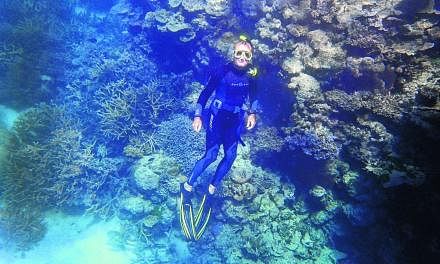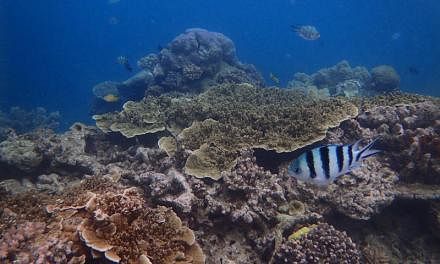Coral reefs and other ecosystems: Band-aid solutions won't save Great Barrier Reef
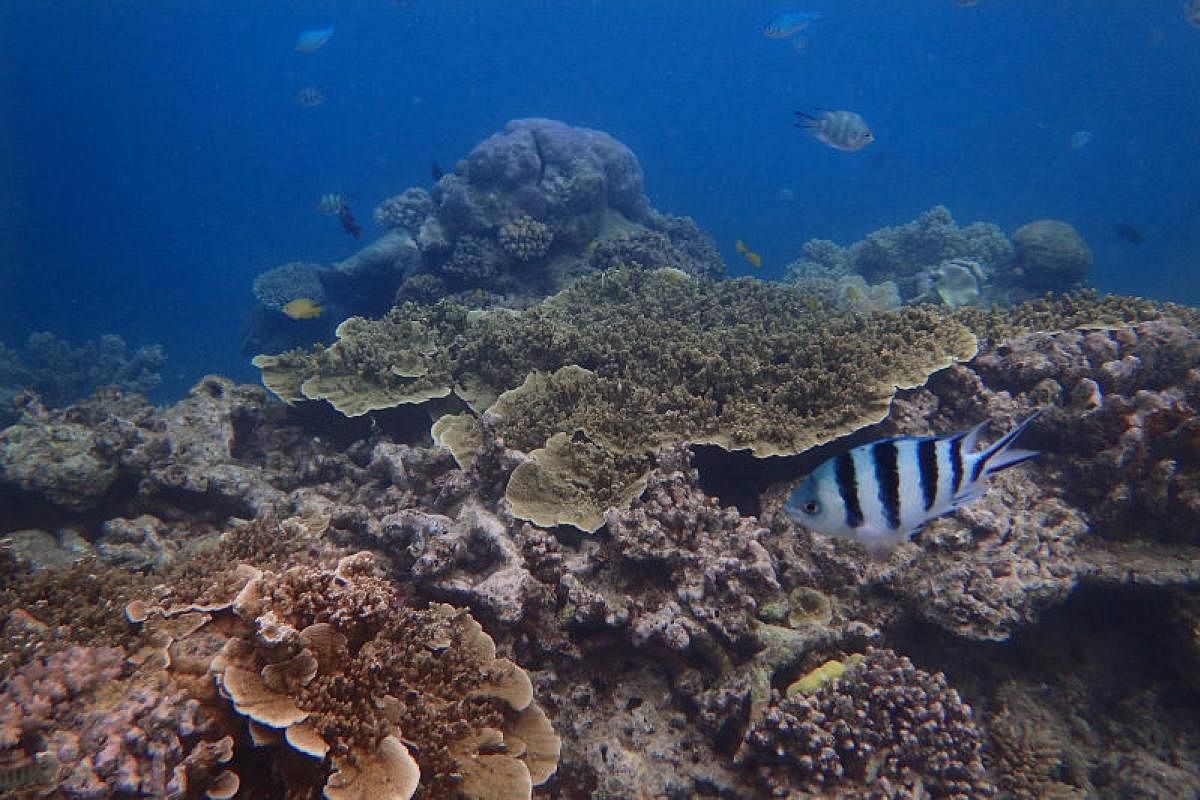
The Australian government is under increasing pressure to do more to protect the Great Barrier Reef after severe damage caused by marine heatwaves in 2016 and 2017 laid bare how vulnerable the reef system is to climate change.
The federal government has pledged billions of dollars for programmes to better manage the reef. These will aim to reduce water pollution from agriculture and land clearing, cull huge infestations of coral-eating crown-of-thorns starfish and improve fisheries management, among others. A recent additional A$500 million (S$490 million) pledge will also fund research into reef rehabilitation science.
The United Nations' World Heritage Committee last year commended the government on its long-term reef plan aimed at boosting its resilience but also noted it needed to accelerate action to achieve better water quality and other targets. It also said climate change was the most significant overall threat to the reef's future.
Coral scientists, tour operators and conservationists agree and say the government is dodging its responsibility as reef custodian by refusing to take a stronger policy stand on climate change. Australia's greenhouse gas emissions rose for a third year in 2017 after the government axed a national carbon price scheme.
The federal government also remains a strong supporter of coal mines and liquefied natural gas (LNG) plants, with the gas produced from fracking in agricultural areas.
Australia is the world's top coal exporter and is on track to become the world's biggest LNG exporter. Queensland state, home to the Great Barrier Reef, is a major producer of both. Burning coal is the world's top source of carbon dioxide (CO2), the main greenhouse gas that is heating up the oceans.
The federal government says the industries are important for jobs and export royalties. But many people The Sunday Times spoke to during a recent visit to the reef hubs of Cairns, Port Douglas and Townsville say the government is being disingenuous, and cannot have it both ways - spending billions to protect the reef while supporting the very industries that are slowly killing it.
"They say you can have jobs in coal and you can have jobs in coral. You can't. You've got to make some decisions and they are going to be hard decisions," said Mr John Edmondson, a marine biologist who runs Wavelength reef tours with his wife Jenny out of Port Douglas.
He is among a growing number of reef tourism operators banding together to pressure the federal and state governments to halt support for coal mines and provide greater backing for renewable energy.
Many people ST spoke to were particularly incensed over federal government support for an Indian-backed mega coal mine in Queensland - if built, it would be Australia's largest coal mine - that would ship the coal out through the reef. Owned by energy giant Adani, the mine area would be roughly two-thirds the size of Singapore.
The Queensland government has distanced itself from the controversial mine, refusing any government assistance for a project it says must "stand on its own two feet".
Other people are concerned over poor water quality in rivers flowing out to the reef. The rivers carry sediment from land clearing, pollution from huge sugar cane and banana plantations along the coast and large cattle stations inland.
Mr Col McKenzie, executive officer of the Association of Marine Park Tourism Operators, said there was very little time for Australia and other countries to take stronger climate action.
"We as Australians need to show climate leadership here. The Great Barrier Reef is on our doorstep and we need to protect it," he told ST in Cairns.
Australian Environment Minister Melissa Price, in response to questions, defended the steps taken by the government.
"The reef is one of the world's great natural treasures and makes a vital contribution to Queensland's economy," she said in an e-mail.
"International efforts to reduce global climate change, combined with action at national and local levels to build the resilience of the reef by reducing impacts, are the best insurance for protecting the reef."
Ms Price did not directly answer questions about the threat from coal mining and Australia's own rising greenhouse gas emissions.
"The Great Barrier Reef is being killed by climate change, which is driven by the burning of fossil fuels," said Greenpeace oceans and climate campaigner Alix Foster Vander Elst.
"It's frankly insulting the intelligence of the Australian people and people around the world that the government seems to think that these band-aid solutions it is proposing will protect the reef," she told ST in a Skype interview from Sydney.
"So what we need our governments to do is start transitioning this country away from fossil fuels and polluting industries to renewable energy as soon as possible if we are going to have any hope."
Join ST's Telegram channel and get the latest breaking news delivered to you.
A version of this article appeared in the print edition of The Sunday Times on October 21, 2018, with the headline Coral reefs and other ecosystems: Band-aid solutions won't save Great Barrier Reef. Subscribe
